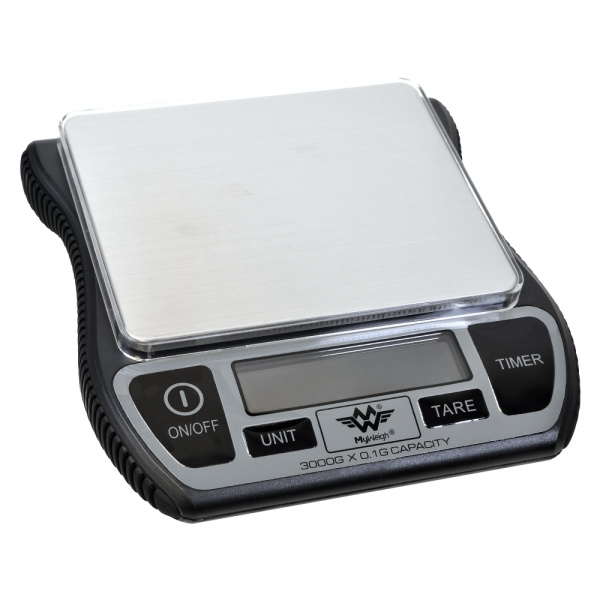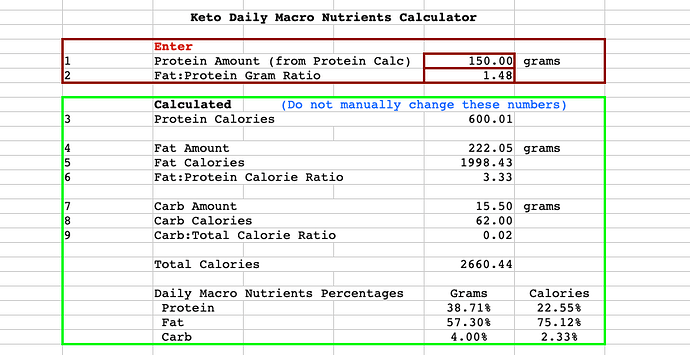Like is there some sort of colored dye or pill I can swallow to see how long it takes to come out the other end and estimate how long digestion takes?
Is there a way to measure metabolism?
What are you trying to determine? Transit time of specific foods? Metabolic base rate? The two aren’t necessarily related. For example, you could have fast transit time simply because your digestive system is not extracting nutrients efficiently. That does not correlate to whether your base metabolic rate is slow, fast or inbetween. You can get your base metabolic rate measured/calculated at various places. Even some exercise facilities have the necessary equipment to do it. How accurate such a measurement would be, I don’t know. Metabolic rate is measured most accurately only in high-end labs with barometric chambers that measure several markers. There is no home device that I know about.
On the other hand it’s fairly easy, but tedious, to determine your own ‘caloric maintenance’ window by trial and error over a few months. And of course this ‘window’ will change if you change your keto macro ratios.
Methyline blue will colour your urine, but I don’t know of any way to track solid food digesdtion, other than to swallow a small object for retrieval after it leaves the bowel.
Eat some red beets. You’ll know when they’ve been digested. I always convince myself I have colon cancer the day after I eat them.
Or you can have a transit time test done. I don’t know if a doctor would order it if you’re not having medical issues though.
I’d like to add to this comment I made above. For a couple of years my macros were 2:1 Fat:Protein grams and 4.5:1 Fat:Protein calories. During that time my maintenance window was 2500-2800 calories. Several months ago (don’t recall offhand exactly) I changed my macros to 1.48:1 Fat:Protein grams and 3.33:1 Fat:Protein calories. My maintenance window is now 2300-2600 calories. So upping protein apparently decreased my base metabolic rate.
This is contrary to what it’s supposed to do since protein requires more energy to process I’d expect my maintenance window to go slightly higher. Maybe it’s not the ingested protein so much, as maintaining a bulk of protein mass in the form of muscles that has the effect. Bulging biceps and pecs I do not have.
PS: Yes, I know that 2500-2800 and 2300-2600 overlap so maybe the difference is not significant. I didn’t say this was simple! What I know for a fact is that a year ago if I ate sub-2500 calories for several consecutive days I’d start to lose weight but now I can eat 2300 calories daily and maintain. In fact, recently I’ve been eating mostly at the low end of my window with no changes in weight. My body comp doesn’t change either. Still 14-15% BF, which it’s been since my initial weight loss over the course of 6 months when I started keto in 2017.
I’m not going to argue with anyone who can tell me their macros to the second decimal place. 
Notes:
- This is total body weight, not lean body mass. And no I don’t care about +/- a pound or two.
- Based generally on Bikman’s recommendations. This could be anything between 1 - 2.5. Higher if building muscle and for older people, especially men. I manually set this number such that multiplied by my total body weight of 145 results in a total of 150 grams of protein. With my previous macros I was eating 120 grams of protein. I wanted to increase this to a round number and 150 seemed a good one. Is this ‘scientific’? I suppose not. The decimal points are just what it took to get the result I wanted.

- The result of multiplying my total body weight by the ratio above. This is a calculated field.
Notes:
-
This is not the protein RDA. This is the desired protein intake calculated by my Keto Daily Protein Calculator. There are many online resources to help determine this number in addidtion to Bikman. Or just wing it like I pretty much did, with Bikman’s recommendations in mind. Do not fear protein!
-
This number is the basic Keto ratio: the number of fat grams per gram of protein. This number can be anything between 1.00 and 5.00 depending on what exactly one is trying to accomplish. Generally, high ratios are used for therapeutic reasons. For simple nutritional keto numbers below 3.0 are recommended. I set this number so that my total calories would remain the same or close to my previous daily total.
The remaining nutrients, component and total calories are calculated from the value of the basic Keto ratio and amount of protein. Thus, once the desired protein amount is determined, the basic Keto ratio adjusts the remaining amounts and totals.
PS: Math is math. I have a very good gram scale accurate to .10 gram and I use it to weight everything to .10 gram.
Your scale is much nicer than mine, then. Mine is nowhere near that accurate. I take stuff out or add stuff – and nothing happens.
This is what I use and have used for several years. I bought it originally when I got serious about reproducibly good coffee. I’m overall quite happy with it. One feature that identifies it as top of the line is I can recalibrate it periodically with a 2kg weight. Also uses a rechargeable internal battery which is very convenient. I don’t remember what I paid, but the place where I purchased in Canada currently lists it for $64

Previously I had a Salter Microtronic Kitchen Scale (accurate to 1 gram) which I purchased from my local London Drugs. Once I got serious about coffee this was a loser. It also uses wafer-style batteries which I detest.
I’m sure that different foods and components of food or liquid have highly variable uptake and pass through rates.
Eat some asparagus and you will be able to smell it in your pee within about 30 minutes, however the fibre in the asparagus probably takes a couple of days to get through the intestinal system.
What you’ve described is not metabolism, it’s transit time. That’s not really a thing that determines much though lots of things speed and slow that depending on what else you eat that day, how hydrated you are etc.
What are you trying to determine specifically?
I’ve heard a method to monitor or measure transit time. I haven’t actually tried it though.
Eat some sunflower seeds but don’t chew them too much. You will observe the fragments in your poops over next few days. Even after you first see them keep checking because it can take days to clear.
I don’t know what this would mean but you could try it
yea you are trying to just measure transit time. Your personal metabolism won’t be ‘determined’ by what method you are wanting to try,
Colored dye will not come out at the speed a big steak eaten will. All foods have different digestion breakdown and then its own waste factor. Eat a burger and almost nothing will come out…there is no waste. Your body uses all that protein and meat is broken way down and used up so much, say vs. eat 2 cups of broccoli with stems and you will have alot of that food coming out that is not digested and comes out as stool waste…so…
what are you trying to actually measure? What is your end results you are wanting?
I eat the same exact thing every day, but I only have a bowel movement once every couple weeks so I’m just curious how long a meal I eat takes to travel from beginning to end
oh cool and I get that. but meat/seafood type animal proteins leave very little waste vs. if you ate a big more plant based meal you would see alot more waste coming like, daily or so…many carnivores don’t go for a long time but end up either daily, or every 2-4 days but in the beginning as our bodies adjust many easily go very very long like you in between and of course it makes us WONDER big on it  but thing is as long as you have no ill effects, pain, or bloating or other anything medical and you feel wonderful, then I would discount it but I do understand you wanting some info on it all…I get that cause I had adjustments also til I just hit ‘my gut stride’ on it for me personally as you will too longer ya hold your eating plan. Time changes us as we hold our plans and we flip around a bit so just keep doing what you are doing as long as you feel wonderful!
but thing is as long as you have no ill effects, pain, or bloating or other anything medical and you feel wonderful, then I would discount it but I do understand you wanting some info on it all…I get that cause I had adjustments also til I just hit ‘my gut stride’ on it for me personally as you will too longer ya hold your eating plan. Time changes us as we hold our plans and we flip around a bit so just keep doing what you are doing as long as you feel wonderful!
While I have known people who would freak out if they didn’t move their bowel precisely at the same time every day, my mother was a nurse, and her training, from the late 1940’s and early 1950’s, was to let the body do its thing and not worry about it. She passed that idea on to us kids.
As a carb burner, I was moving my bowel all the time, often alternating between diarrhoea and constipation. On keto, I move my bowel every few days. On those days it is usually only once, but sometimes a few times that day, depending. The only times I experience constipation comes when I skimp on my salt intake, and I don’t experience diarrhoea unless I am ill.
Every couple weeks isn’t normal dude, I don’t care what anybody says. I had some pretty long gaps in mine (days) and knew that wasn’t normal either. Couple years of that and it ended in a colonoscopy to learn I screwed myself up. I needed fiber. Do you have trouble going when you do?
No, I have not had constipation in many years, even on SAD. Bowel movements have always been quick and easy
I’ve been dealing with an irritated stomach for quite some time and another poster said liquid chlorophyll helped so I got some to try.
I can tell you the transit time for me is about 48 hrs. That’s when the greenish tinge showed up!


